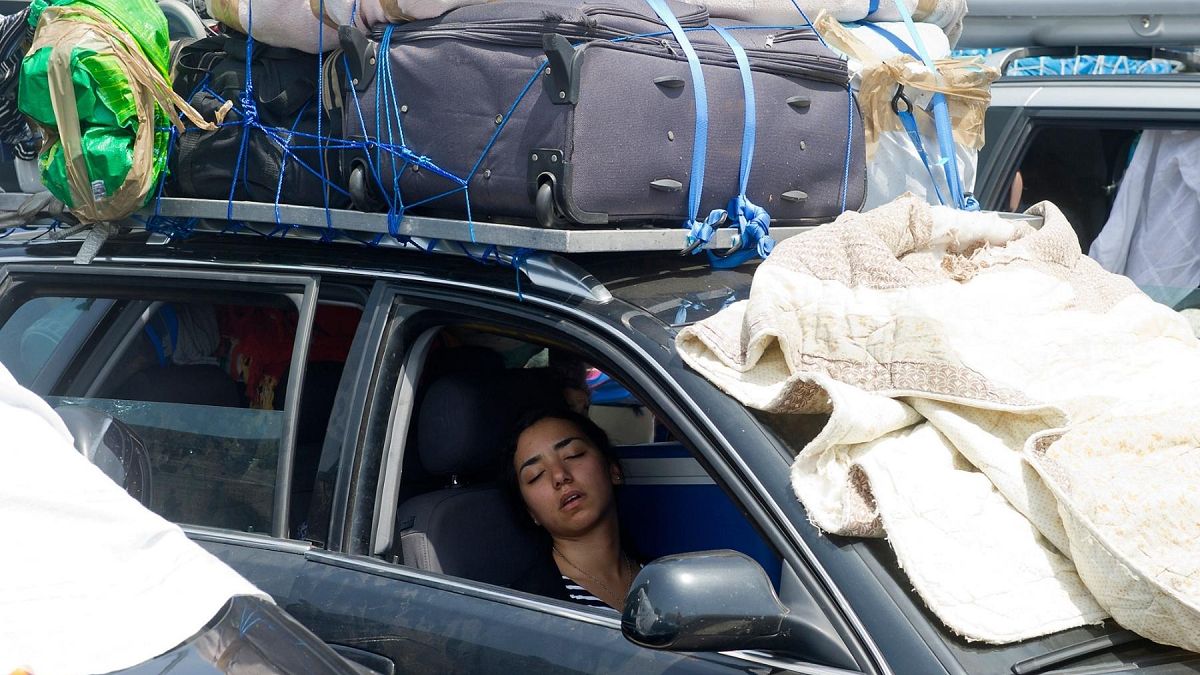With more than 3.3 million travellers in the summer of 2019, the crossing is one of the world's largest flows of people between continents in such a short period.
Millions of Moroccans living in Europe can soon begin to head home for the summer holidays, something that has been difficult to do on the traditional ferry crossings from Spain in recent years due to a diplomatic spat and COVID restrictions.
"Finally," said Reda, a 20-year-old Moroccan who arrived at the port of Algeciras in southern Spain on Wednesday, the first day of Spain's "Crossing the Strait" operation, which marks the summer return of the Moroccan diaspora.
Like him, millions of Moroccans in Europe have waited three years to take the "road to the boondocks" and return to Morocco for the summer by car and ferry via Spain.
For this to happen, Rabat had to decide in mid-April to re-establish maritime links with Spain after the end of a serious diplomatic crisis lasting almost a year between the two countries bordering the Strait of Gibraltar.
"Last night I couldn't sleep, I was too excited," said Reda, who drove nearly 4,500km with his girlfriend from the Finnish capital Helsinki where he is a student. His final destination is Agadir in southwest Morocco.
With more than 3.3 million travellers and more than 760,000 vehicles in the summer of 2019, the "Crossing the Strait" or "Marhaba" operation is one of the world's largest flows of people between continents in such a short period.
"These are the only two summers (2020 and 2021) of my life that I haven't spent in Morocco," Reda said, wearing flip-flops and a bobblehead. Going down by car, "it's almost a tradition for us".
In the large port complex of Algeciras, Reda is only 14km from Tangier on the Moroccan coast. On Wednesday, a few cars loaded with luggage, and families looking for a shady spot to eat in front of imposing red ferries were beginning to be seen.
On the other side of the strait, the arrival is going smoothly.
"The welcome went very well. We were checked but I think it's good for everyone's safety. I'm in a hurry to start my holiday though," said Omar, as he got off the ferry from Tarifa, another Spanish port.
The crossings are not yet too crowded, with the peak travel expected to hit towards the end of June and first weekend in July.
Resuming maritime links between Spain and Morocco
Maritime links between Spain and Morocco only resumed in mid-April, while Rabat had reopened its ports to other European countries by the summer of 2021.
The border between the two countries had been closed in March 2020 due to the COVID pandemic, with the closure then prolonged by the diplomatic crisis in May 2021 over Western Sahara, a former Spanish colony of which Morocco controls around 80%, but which is also claimed by the Sahrawi pro-independence Polisario Front.
The crisis ended in March when Madrid reversed its position and supported the Moroccan autonomy plan.
"It's a disgrace (...) With these disputes between politicians, those who pay the bill are the people," said Abdel Ghani, 67, a pensioner with dual Spanish and Moroccan nationality who came to buy a ticket.
"You can't close the border when millions of people want to cross," said Reda, who said his parents "went crazy" last summer after Spain was excluded from maritime links with Morocco.
Lost revenues from years without travel
This summer, Spanish and Moroccan authorities are expecting even more travellers than in 2019, the last year before the pandemic.
Morocco launched its "Marhaba" operation on 5 June with agents deployed in the Spanish ports of Motril, Almería and Algeciras, and also in those of Sète and Marseille in southern France, and Genoa in Italy.
But "unfortunately, the money lost" during the more than two years of closure "will not be recovered", laments Manuel Piedra, president of the Association of Service Companies of Algeciras Bay.
The association estimates that direct and indirect losses to local businesses near the Spanish port amounted to nearly €500 million.
As he waits for his ferry, Reda forgets politics, stares into space and travels back in time: "It reminds me of my childhood, I used to travel every summer by car". "It's just great!
